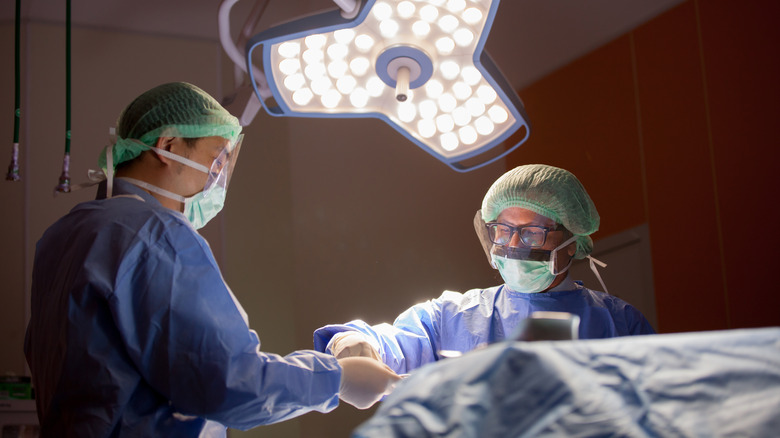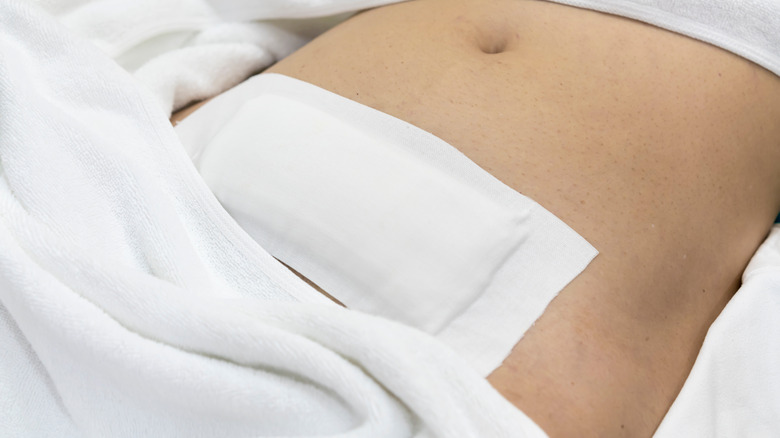This Is What Happens To Your Body After You Get A Hysterectomy
Having a uterus can definitely be a mixed bag. Many people appreciate the ability to bring children into the world, but once menstrual cramps come, women often don't view their wombs so kindly anymore. Some women even joke about wanting to get rid of their wombs altogether.
In reality, hundreds of thousands of women actually do have their wombs removed each year through a procedure called a hysterectomy (per University of Michigan), but it is generally only used as a last resort. When all other treatments fail, hysterectomies are used to treat abnormal vaginal bleeding, severe pelvic pain, severe endometriosis, painful fibroids, uterine prolapse, and cervical or uterine cancers (per U.S. National Library of Medicine).
The Office on Women's Health notes that because hysterectomy is a major surgery, you will likely be in the hospital for a day or two, and then take a few weeks to fully recover. After that, most people will experience an improved quality of life, since they will no longer have the symptoms that led them to get the surgery in the first place.
Side effects of hysterectomies
In the weeks after surgery, you may experience discomfort, numbness down your leg, bloating, light vaginal bleeding, or dark brown discharge. Once you have your uterus removed, you will no longer have periods and you will be unable to bear children. If your ovaries are removed as well, you may experience menopause symptoms such as hot flashes, says the Cleveland Clinic.
Some women will experience vaginal dryness and a lower libido, especially if they had their ovaries removed (per Office on Women's Health). Other women may experience an improvement in sexual functioning, according to a 2007 study published in The Journal of Sexual Medicine.
The Office on Women's Health warns that getting a hysterectomy may put you at higher risk of health conditions such as heart disease, bone loss, and incontinence. In addition, a 2014 study (via International Urogynecology Journal) found that 12% of women who had a hysterectomy ended up needing pelvic organ prolapse surgery.
Because of potential side effects, some experts recommend that people ask their doctors about "nonsurgical alternative therapies for fibroids, endometriosis and prolapse, which are leading causes of hysterectomy" (via Mayo Clinic). If push comes to shove and you need a hysterectomy, rest assured that most women in your position don't regret it (per Journal of Patient Experience).


